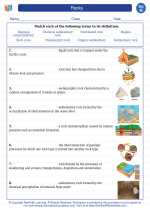Chlorine
Chlorine is a chemical element with the symbol Cl and atomic number 17. It belongs to the halogen group of elements and is a highly reactive nonmetal. Chlorine is commonly found in the Earth's crust, seawater, and in the form of various compounds.
Physical and Chemical Properties
- Physical state: Chlorine exists as a greenish-yellow gas at room temperature and pressure.
- Odor: It has a pungent and suffocating odor.
- Reactivity: Chlorine is a highly reactive element and readily forms compounds with other elements.
- Use: It is widely used in the production of various chemicals, disinfectants, and plastics.
Role in the Environment
Chlorine plays a vital role in the environment. It is used to disinfect drinking water and swimming pools, effectively killing harmful bacteria and pathogens. However, it can also have negative impacts on the environment when released in large quantities, such as contributing to the depletion of the ozone layer.
Health Effects
Exposure to high levels of chlorine gas can be harmful to human health, causing respiratory issues and irritation. It is important to handle chlorine and its compounds with care and follow safety guidelines to prevent any adverse health effects.
Study Guide
To study and understand chlorine better, you can follow these steps:
- Learn about the physical and chemical properties of chlorine, including its appearance, odor, and reactivity.
- Explore the various uses of chlorine in industries and its significance in daily life.
- Understand the environmental impact of chlorine and its role in water treatment and sanitation.
- Research the health effects of chlorine exposure and the safety measures to handle it.
- Conduct experiments or demonstrations to observe the properties and behavior of chlorine in a controlled setting.
By following this study guide, you can gain a comprehensive understanding of chlorine and its importance in various aspects of science and everyday life.
[Chlorine] Related Worksheets and Study Guides:
.◂Science Worksheets and Study Guides Eighth Grade. Rocks
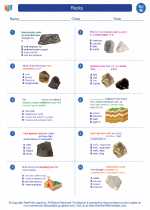
 Worksheet/Answer key
Worksheet/Answer key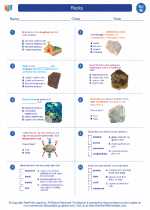
 Worksheet/Answer key
Worksheet/Answer key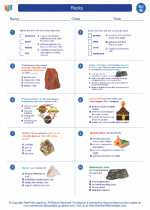
 Vocabulary/Answer key
Vocabulary/Answer key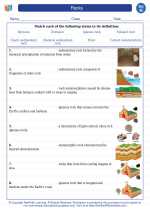
 Vocabulary/Answer key
Vocabulary/Answer key
 Vocabulary/Answer key
Vocabulary/Answer key